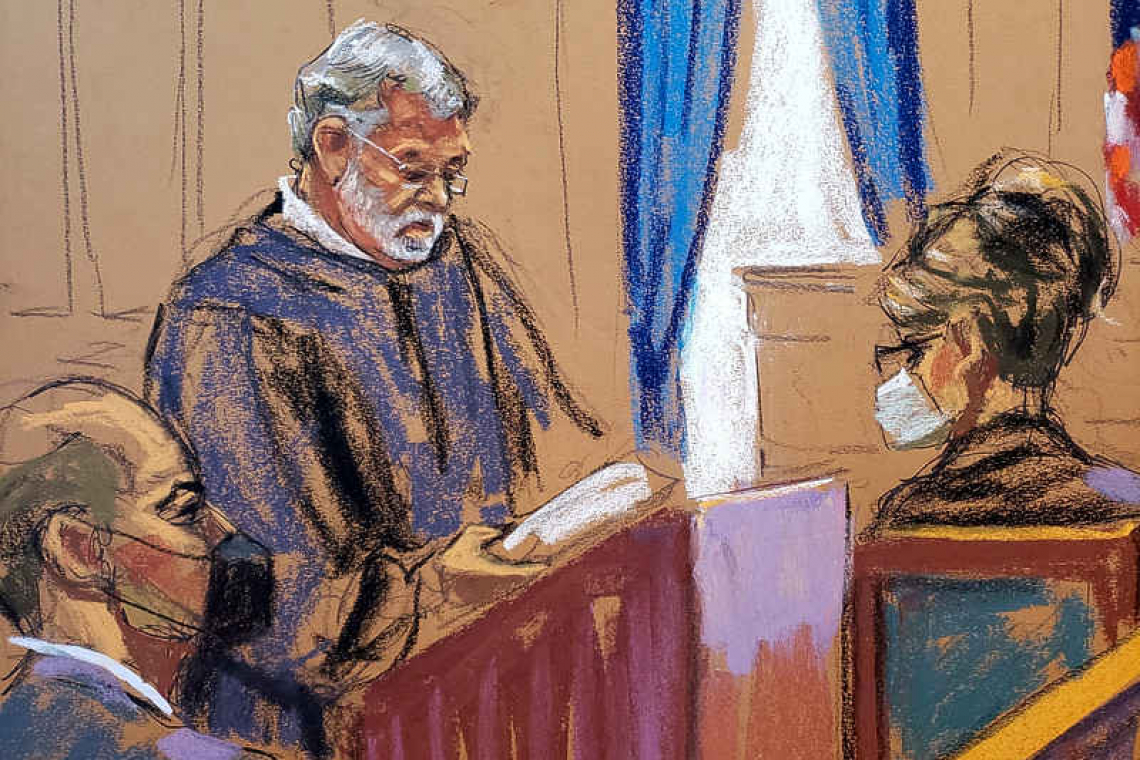NEW YORK- - A U.S. judge on Monday said he will throw out Sarah Palin's defamation lawsuit against the New York Times NYT.N after concluding that the newspaper did not in an editorial maliciously link the former Alaska governor and 2008 Republican U.S. vice presidential candidate to a mass murder.
In an abrupt twist in a trial seen as a test of longstanding protections for American media, U.S. District Judge Jed Rakoff in Manhattan said Palin's lawsuit must be dismissed because she failed to show the Times acted with "actual malice," the established standard in such cases.
The judge, however, allowed jurors to continue their deliberations in the case despite his intention to dismiss it and did not inform them of his plans. Rakoff said he plans to enter a formal dismissal only after jurors reach their own verdict.
"If you see anything in the media about this case, just turn away," the judge told jurors before dismissing them for the day.
Rakoff said he expected Palin to appeal, and that the appeals court "would greatly benefit from knowing how the jury would decide it."
The judge's action effectively takes the case out of the hands of jurors, in a trial that began on Feb. 3.
Lawyers for the Times and Palin were not immediately available for comment.
Rakoff, an appointee of Democratic former President Bill Clinton, said he was "not altogether happy" about ordering a dismissal, calling the original editorial "an example of very unfortunate editorializing on the part of the Times."
But the judge went on: "My job is to apply the law. The law here sets a very high standard for actual malice, and in this case the court finds that that standard has not been met."
Gautam Hans, a Vanderbilt University law professor, said Rakoff's order, while unusual, is reasonable and will likely hold up on appeal.
"It is very difficult for plaintiffs to prevail in defamation cases," Hans said. "That's one reason you see some antipathy toward the current state of the law, including from some Supreme Court justices."
Palin, 58, had sued the newspaper - one of America's most prominent media organizations - and its former editorial page editor James Bennet.
She contended that a June 14, 2017, editorial incorrectly linked her to a mass shooting six years earlier that wounded Democratic U.S. congresswoman Gabby Giffords.
SUPREME COURT PRECEDENT
Palin had said that if she lost at trial, her appeal might challenge New York Times v. Sullivan, the 1964 U.S. Supreme Court decision establishing the "actual malice" standard for public figures to prove defamation.
Headlined "America's Lethal Politics," that addressed gun control and lamented the rise of incendiary political rhetoric.
It was written the same day as a shooting at a congressional baseball practice in Alexandria, Virginia where Republican U.S. congressman Steve Scalise was wounded.
One of Bennet's colleagues prepared a draft that referred to the January 2011 shooting in a Tucson, Arizona, parking lot where six people were killed and Giffords was wounded.
Bennet inserted language that said "the link to political incitement was clear" between the Giffords shooting and a map previously circulated by Palin's political action committee that the draft editorial said put Giffords and 19 other Democrats under crosshairs.
The Times corrected the editorial about 14 hours later. Bennet testified that he made the additions too quickly under deadline pressure, and intended no harm to Palin.
It is rare for a major media outlet to defend its editorial practices in court, as the Times had to do in this case.
Palin had sought unspecified monetary damages.
On the witness stand, Palin compared herself, a celebrated conservative politician with a national following, to the biblical underdog David against the Times' Goliath, while accusing the newspaper of trying to "score political points."
Palin testified that the editorial left her feeling "powerless" and "mortified," and that the correction issued by the newspaper the morning after publication was accurate but insufficient and did not mention her by name.
She maintained that the Times undermined her reputation by falsely linking her to a mass murder and by not being fast or thorough enough in correcting its error.
Palin, who no longer commands as much public attention as she once did, struggled under cross-examination to provide specific examples about how the editorial harmed her reputation and cost her opportunities.
Times lawyer David Axelrod in closing arguments on Friday told jurors the editorial amounted to an "honest mistake" and was not meant as a "political hit piece."
The case placed renewed attention on Palin, the late Senator John McCain's running mate in the 2008 presidential election.
That campaign made Palin a Republican Party star and hero to many conservatives who viewed her as an outsider willing to take on liberals and established institutions including the news media. She served as Alaska's governor from 2006 to 2009.







